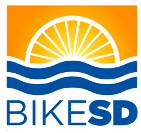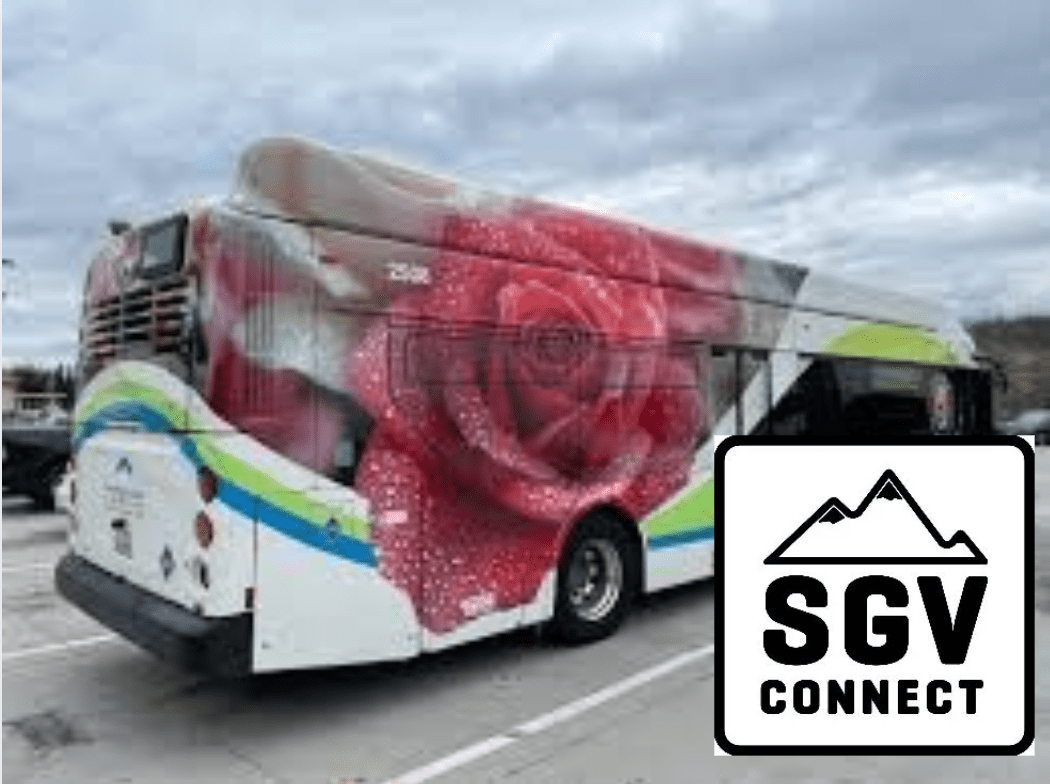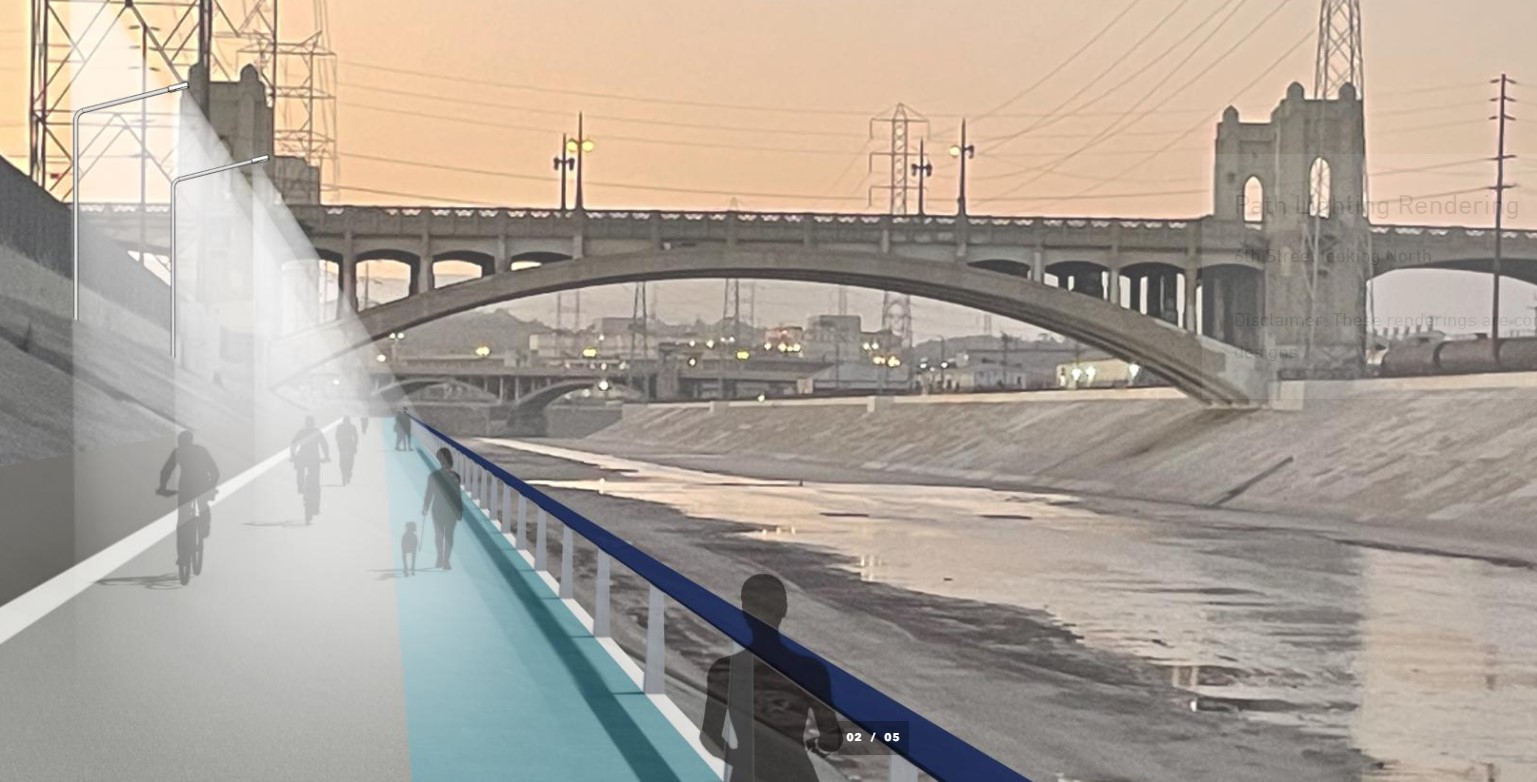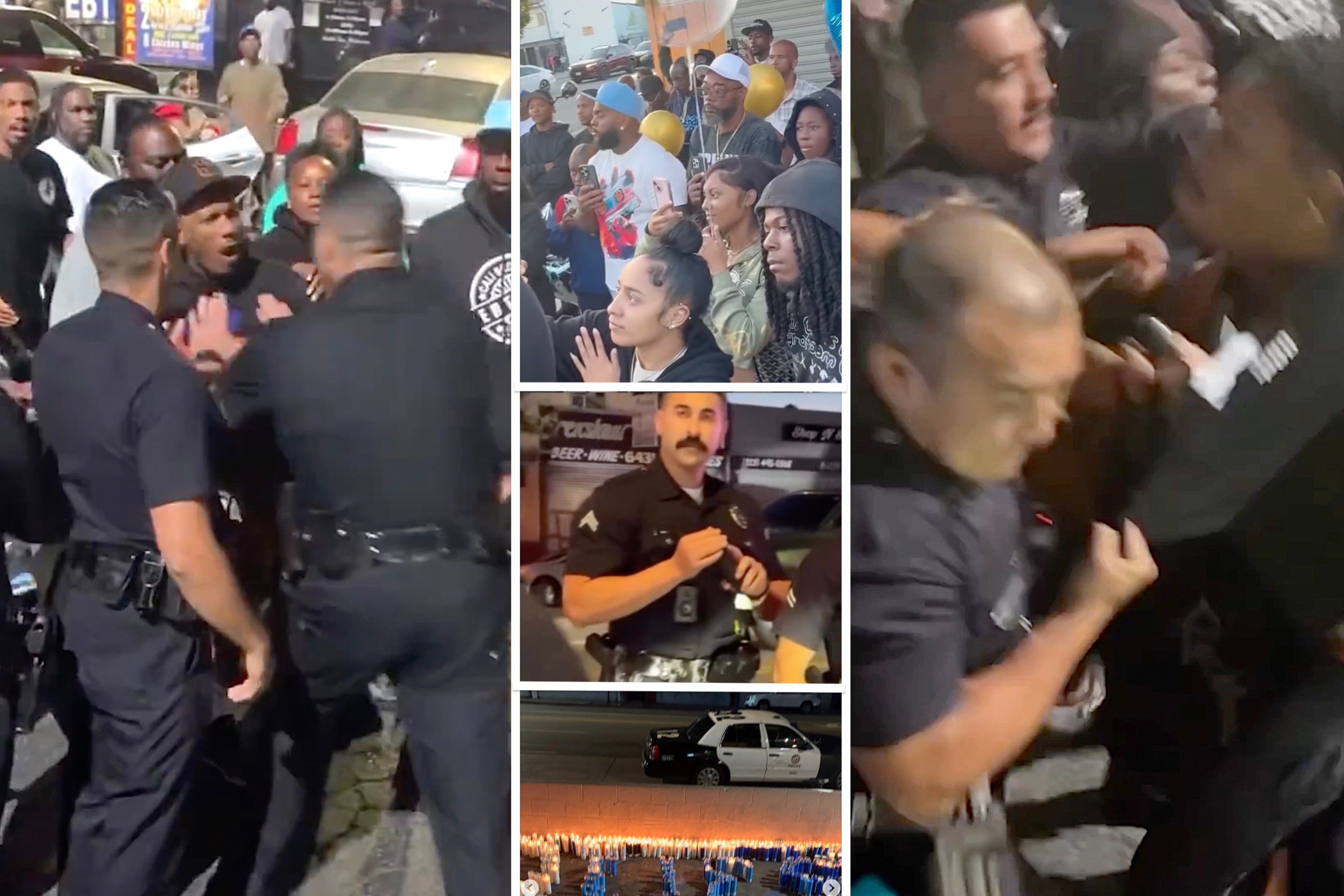Bike San Diego won this year's Advocacy Organization of the Year award from the Alliance for Biking and Walking at the National Bike Summit earlier this month in Washington, D.C. Pretty good for an all-volunteer-run organization that has only been around for a little over a year.
During that year, however, BikeSD shifted from being an influential blog by founder Samantha Ollinger to an active representative of bicycle riders in local planning efforts and politics.
“It hasn't really sunk in that we won,” said Ollinger of winning the award. “It's an incredible honor. National recognition is very gratifying, and having that tangible acknowledgment is a huge deal. Our volunteers work hard, I work hard, our board works incredibly hard. And we're all volunteers.”
In addition to her day job as an accountant, she is on the planning board for her neighborhood, works with city agencies and local organizations on planning efforts including the San Diego Bicycle Plan, and just applied to be on the police Citizens' Review Board.
“My social life is all about BikeSD,” she said. “If you want to have drinks with me, we're going to talk bike policy.”
Last year the group's focus was largely on advocacy efforts, targeting city officials and local organizations to make sure the concerns of bicyclists were taken into account. One of the organization's big achievements was convincing planners that car Level of Service (LOS) was not an appropriate measure for bike infrastructure proposed in the new San Diego Bike Plan.
“I've been really impressed with BikeSD,” said Kathleen Ferrier, Policy Manager of the non-profit Walk San Diego (which recently merged with MoveSD). “San Diego advocates have traditionally been very polite, very restrained, but BikeSD broke those 'rules.' I had been working on the LOS issue for several years, trying to get our message across, and I hadn't been able to break through the communciation barrier. Bike SD broke down those barriers” and helped get LOS removed from the bike plan.
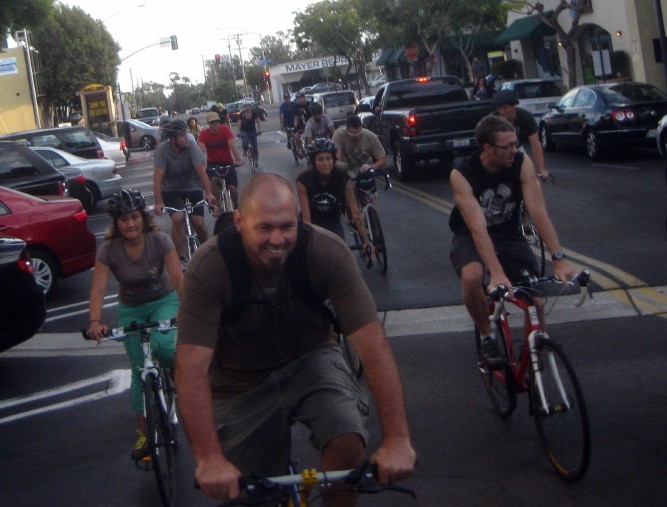
“As San Diego becomes more bike friendly,” she said, in part because of Bike SD's efforts, “There's more attention to these issues. Sam is really good at making it seem relevant to our communities. She knows when the issues are ripe and calls for action.”
In the coming year BikeSD plans a shift towards organizing community events and creating opportunities to educate people about the importance of urban planning and infrastructure. The group plans to connect with local organizations that are already involved politically and to get more people actively involved in the issues that concern them. “People don't see the connection between land use and political decisions,” she said.
“Each San Diegan has fifteen to twenty elected representatives on every level--local, regional, state, and national. All of them are voting on decisions that, ideally, reflect individual voter's wishes. We want people to understand how all that connects in a fluid narrative.”
One of BikeSD's new projects is organizing bike clinics, where volunteers offer help fixing up bikes for homeless and others who need them. The first one was held this last Saturday. “Bus fares are expensive, and the bicycle is the most convenient way to get around. We train people to fix their bikes, and also how to secure them so they don't lose them.”
Another issue the organization is tackling head on is the fear that bike lanes will remove parking. “There's still a huge fear of loss of parking spaces when bicycle and pedestrian facilities are put in,” said Ferrier, “and media articles focus on that, not on the bike facilities. BikeSD has done a really good job getting people to voice their support for the bike facilities, including business owners.”
“We're trying to make it more fun,” said Ollinger, “planning programs like a bike prom with an educational component. We'll be working on building our base of support.”
Winning the award has already brought positive attention to the group. “I've been getting tons of email,” said Ollinger. “Inbox zero is further and further away. People are excited and enthusiastic and want to help or to start their own thing. It's really great.”
But being an all-volunteer organization can limit what gets done. “We need to raise money,” said Ollinger. “I've got a lot of talent here and it kills me that I can't pay people.”
Ferrier commented about the award, “Every year the [Advocacy Awards] have become more prestigious and there's more visibility about who's winning. It makes the rest of us want those awards too. We all work hard, but maybe it can help us step it up a little.” She laughed. “Maybe that sounds too competitive. I don't mean it to be--but it would be nice to win, too.”
